Jorge Sylvester Ace Collective - Spirit Driven (2013)
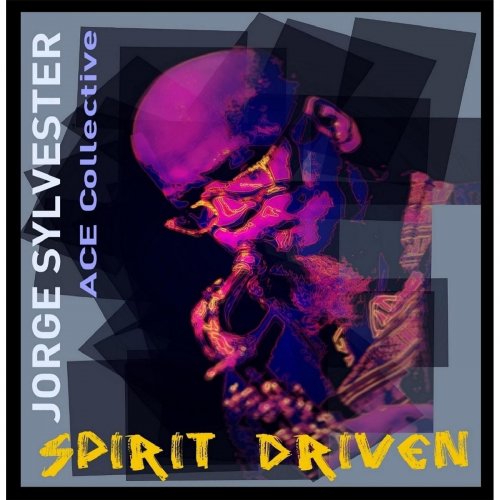
Artist: Jorge Sylvester Ace Collective
Title: Spirit Driven
Year Of Release: 2013
Label: RedZen Records
Genre: Jazz, Fusion
Quality: flac lossless (tracks)
Total Time: 01:26:53
Total Size: 548 mb
WebSite: Album Preview
TracklistTitle: Spirit Driven
Year Of Release: 2013
Label: RedZen Records
Genre: Jazz, Fusion
Quality: flac lossless (tracks)
Total Time: 01:26:53
Total Size: 548 mb
WebSite: Album Preview
CD1
01. Construction No. 2
02. Masouc
03. Paulina's Prayer
04. The Light of Truth's High Noon Is Not for Tender Leaves
05. Obeahman
CD2
01. Construction No. 1
02. To Be With You
03. Remember Haiti
04. Cycle of Life
In a 1967 interview with Jazz & Pop magazine, John Coltrane stated: "I know that there are bad forces, forces put here that bring suffering to others and misery to the world, but I want to be the force which is truly for the good." In his lifetime and beyond, Coltrane has inspired artists to infuse their work with this mission, and certainly alto saxophonist and composer Jorge Sylvester can be counted as one of Coltrane's heirs. Spirit Driven is an 86-minute sonic feast by Sylvester and his ACE Collective that shows just how music and spirituality can intertwine. This is music that invokes forces for the good, played by people who feel these forces—and it also offers a cautionary tale about what happens to the world when these forces are absent.
The ACE (Afro-Caribbean Experimental) Collective is breaking new territory with its musical amalgamation of the Afro-Caribbean diaspora, the jazz tradition, and free music art-forms. Artists such as Duke Ellington, Charles Mingus and Dizzy Gillespie used Afro-Caribbean rhythms in their compositions, but their work didn't experiment with the pulses in these rhythms; part of what sets the ACE Collective apart is their expansion and reconfiguration of these pulses. In addition, the Collective includes poetry and storytelling in many of its pieces, and they also bring to light traditional songs from the Afro-Caribbean tradition. Clearly this music goes deep and wide, and the result is a multi-layered, multi-cultural aural banquet.
The music is also special because of the six musicians who play it. First there's Sylvester, the guiding force behind the Collective. He grew up in Panama, where he studied formally at the Panama Conservatory of Music; he also received an old-school foundation with jazz saxophonist Euclides Hall, which empowered him to lead a Caribbean dance band when he was just a teen. He then spent a decade in Europe soaking up various musical worlds, including free jazz explorations with the Luis Vecchio Quartet. In his thirties Sylvester jumped into the American scene, including studying at SUNY New Paltz and participating in Karl Berger's legendary Creative Music Studio in Woodstock, where Sylvester worked with masters such as bassist Dave Holland and saxophonist Marion Brown. His musical world expanded from there, and over the years he has performed with vibraphonist Stefon Harris, the David Murray Big Band, the Oliver Lake Big Band, Kuumba Frank Lacy's Vibe Tribe, multi-instrumentalist Hammiet Bluiett, and the World Saxophone Quartet. In addition to this illustrious sideman work, Sylvester has excelled as a leader, developing his own musical vision and exercising his considerable talents as a composer, conductor, and arranger, including co-leading the groups The ConceptualMotion Orchestra and A Small Dream in Red. At this point in his career, Sylvester is experiencing the exciting bloom of a mature musician who is wholly realizing his vision.
The rest of the Collective adds their own depth and brightness to the proceedings. Singer and poet Nora McCarthy has been collaborating and co-leading with Sylvester since 2001, contributing her formidable skills as a vocalist who moves easily from the traditional to the avant-free; then there's the mighty trumpeter Waldron Mahdi Ricks, who has played with historic greats such as drummers Art Blakey and Roy Haynes, as well as provided compositions for notable TV projects. Chilean Pablo Vergara studied with eminent bassist Ron Carter and has been part of musical worlds ranging from saxophonist Gato Barbieri, to flautist Dave Valentin, to Cuban violinist Alfredo DeLaFe, to Turkish Sufi virtuoso Omar Faruk Tekbilek. Electric bassist Donald Nicks is best known for his excellent work with jazz-funk master Roy Ayers and soul-jazz keyboardist Mark Adams; and drummer Kenny Grohowski, the youngest member of the Collective, has played with an impressive range of jazz, rock, Brazilian, and New Classical artists, including guitarist Vernon Reid, singer Cassandra Wilson, and bassist Lonnie Plaxico. All in all, the Collective contains decades of experience in a wealth of musical worlds. As Ramsey Ameen states in Spirit Driven's liner notes: "This is a veritable star cluster of musicians."
The recording contains nine powerhouse songs, with the buoyant 14-minute opener "Construction No. 2" illustrating just what this group can do. The tune has an intricate arrangement that takes a journey through many moods and rhythmic changes; this is a quality that all the pieces on the recording share, and as a result each song feels like a short story with its own tale to tell. It's also apparent that each of these musicians can execute compound rhythms and complex harmonies at very fast speeds. This creates a tremendous energy, a forward thrust to the music that's alive and kicking. Among the many pleasures of this tune, there's simpatico front-line work with Sylvester and Ricks, which is further strengthened when McCarthy joins in, melding her voice with the others in pure sound forms. The solos are uniformly strong: Sylvester offers a warmhearted solo that's overflowing with elegantly shaped phrases; McCarthy's free-form scatting is soaring and true, with a variety of delightful turns and bends; and there's a fine trumpet solo by Ricks, who among his many talents is able to play adroitly in the high register. And it's all propelled by an exceptional rhythm section that keeps the whole thing cooking—Nicks' bass offers many a funky groove, Vergara is sparkling and inventive on piano, and there's first-rate drumming by Grohowski, who keeps the rhythms aloft and shifting with enviable ease. The tune ends on a thrilling high note, with everyone playing all out. This is full-on energy music, bold and bright and compelling, bursting with life force and spirit.
The majority of the songs feature lyrics or vocalizations, but there's also "Paulina's Prayer," a 9-minute instrumental written for Sylvester's mother. An eloquent tune with a charming melody, it features yet another intriguingly multifaceted arrangement, with flourishes and shifts in unexpected places. The rhythm section shines on this piece, with oh so graceful touches including shimmering cymbals and deep, gentle basswork. Again the solos are outstanding: Sylvester's sax is lyrical and pretty, while simultaneously infused with a haunted quality; Ricks' trumpet aches with tenderness; and Vergara's piano is both graceful and economical. In this piece, Sylvester offers a lovely tribute to his mother, and superbly expresses one of the most essential bonds that drives the spirit.
"To Be with You" is an example of the Collective's commitment to traditional songs in the Afro-Caribbean tradition. Known as the "all-time classic Latin soul ballad," the tune was written in early 1950s by Nick Jimenez and Willie Torres, the team responsible for composing some of the first Latin dance music in English. A luminous ballad that's spacious and romantic, the piece provides a magnificent vehicle for McCarthy. One of her strengths is the ability to interpret lyrics, and here her phrasing is exquisite, locating the direct heart of the song's passionate longing. The rest of the group plays with the most delicate touch, taking the tune at a slow, measured pace as the tender emotions unfold and deepen. Mention must be made of Sylvester's long, gorgeous solo, an intertwining of soul and delicacy that's beautifully executed. There's also fine work by Sylvester and Ricks behind McCarthy's lyrics, again demonstrating the two players' in-tandem strength; it's always a pleasure to hear these two intertwine. This album is about spirit of all kinds, and "To Be with You" offers a reminder that the highest romantic love is driven by spirit as well.
In a recording chock-full of strong songs, two in particular stand out. "Remember Haiti" is a dazzling tune with tremendous energy and an impassioned message, a heartfelt homage to this island nation and the great suffering it has recently endured. The rhythms on this 9-minute piece are particularly stunning, and it's a wonder to witness the group execute them with such accuracy and flair. The first half of the piece features vocalizations by McCarthy, fiery and melodic and free flying. A host of energies boil throughout this section, as the rhythms express beauty and urgency and chaos and more than a touch of menace. It's an artful exploration of the joy of this island, along with its sobering truth. Just past the midpoint, McCarthy starts an ardent poem about Haiti, both a tribute to this land and a call to action. The poem includes the horrific fact that since November 2010, Haiti's death toll from earthquake, hurricanes, and cholera is 295,000 dead and counting, and there's also thousands of people lost, starving, and living in squalor. McCarthy delivers the poem with burning conviction, calling forth the anguished cries of our fellow humans: "Don't turn a blind eye . . . Wail at the wall of global indifference." The arrangement includes call-and-response with the rest of the group, providing a powerful Greek chorus to affirm the truth of McCarthy's poem. This is a great tune in the rich tradition of jazz protest music, pointing out where the spirit is lacking and calling on the world to dig deeper.
"Obeahman" is the recording's tour de force, a brilliant piece that combines remarkable musicianship with layers of meaning. The song starts with a nimble sax solo by Sylvester, then busts out into a fantastic rhythm, with vocalizations by McCarthy that keep abreast of the complex rhythmic tiers. Then McCarthy sings the famous Caribbean tune "Yellow Bird," which is a reworking of the 19-century Haitian song "Choucoune." It's an incredibly appealing melody, but it's also a piece of music that has become infused with island tourism. And then there's the title: "Obeah" refers to folk magic or sorcery, and the Obeahman has always been a powerful figure in Caribbean culture, including playing a crucial role in slave rebellions. It's an interesting choice to use this title to reinterpret a song that most tourists associate with the "carefree" Caribbean lifestyle—but the title could just as easily refer to the musicians themselves as magicians. Clearly there are nuances of culture and intentions in this piece that are open to interpretation, and yet at the end of the day, this is just terrific music: the tune has an incredibly appealing rhythm, as fast and complex as spinning plates in the air. The Collective manages to turn a classic song inside-out and make it their own, all the while remaining true to the unique spirit and unseen aspects of island culture.
The album ends with the upbeat "Cycle of Life." The tune is grounded throughout by Nicks' funky bass grooves, and contains more great front-line work with Sylvester, Ricks, and McCarthy, as well as sensitive percussive accents by Grohowski. There's a warm solo by Sylvester laced with sinuous lines, and a fluid solo by Rick, nimble and lightning-fast. McCarthy contributes a joyful scat interlude, her voice buoyant and free as a bird, and Vergara's piano solo is appealingly lithe and bluesy. The lyrics provide a reminder of the interconnection and common origin of all life, and altogether the song is a great way to end this 86-minute musical journey, a reminder that all spiritual experiences—joy, love, romance, tragedy, magic—come and go as part of an even bigger cycle.
There's probably no nobler way to spend one's life than in the pursuit of making spirit manifest, to search for the good and then share it. Coltrane certainly felt this way, and it's clearly the right—perhaps the only—direction for the musicians who make up the groundbreaking ACE Collective. The music on Spirit Driven does in fact have an incredible spirit, something truly uplifting and life-affirming that's a potent layering of musical influences, cultural knowledge, and spiritual intention. The ACE Collective has brought utmost sincerity and musical skill to this recording, and the result is a multi-cultural explosion that is not to be missed.
![Andrea Braido - An Evening with Andrea Braido Trio Live! (2026) [Hi-Res] Andrea Braido - An Evening with Andrea Braido Trio Live! (2026) [Hi-Res]](https://www.dibpic.com/uploads/posts/2026-03/1772441152_cover.jpg)
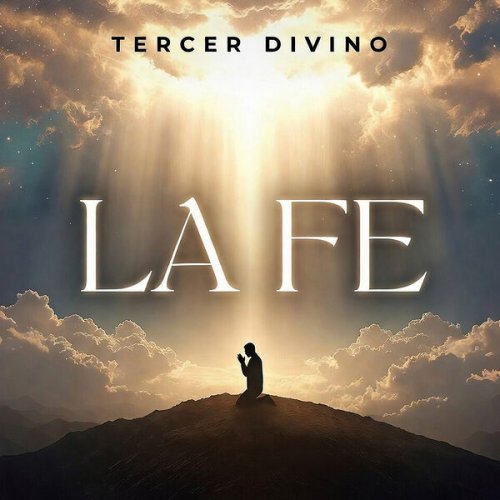
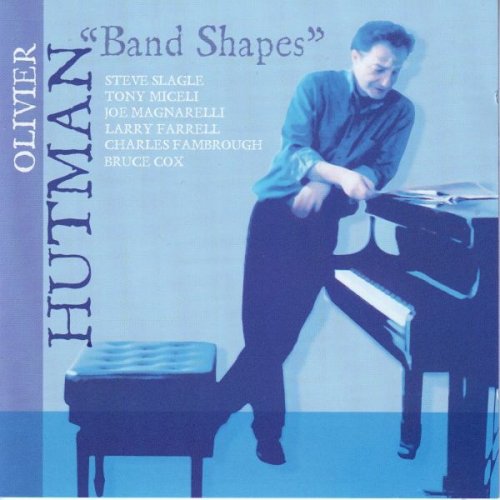
![Chad Lefkowitz-Brown - City Spirit (2026) [Hi-Res] Chad Lefkowitz-Brown - City Spirit (2026) [Hi-Res]](https://www.dibpic.com/uploads/posts/2026-02/1772171883_y3mc4z2lmsr7a_600.jpg)
![Anaïs Mitchell, Hadestown Original West End Cast - Hadestown Live From London (Bonus Track) (2026) [Hi-Res] Anaïs Mitchell, Hadestown Original West End Cast - Hadestown Live From London (Bonus Track) (2026) [Hi-Res]](https://img.israbox.com/img/2026-03/02/pyxmwd7tv9pde1c102p9df24t.jpg)
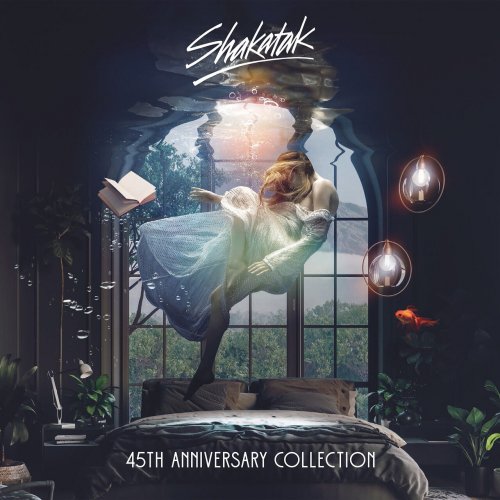

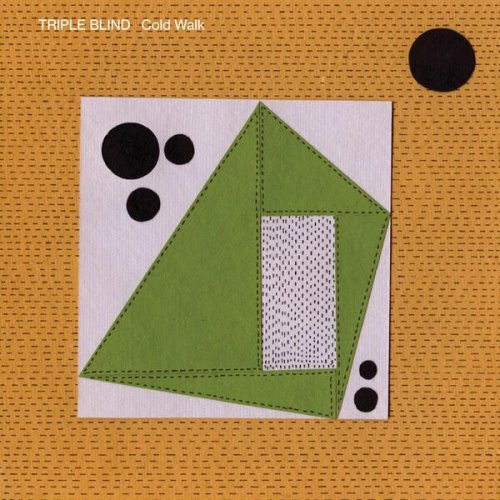
![Mehmet Ali Sanlikol - The Electric Oud Man Speaks and You Listen... (2026) [Hi-Res] Mehmet Ali Sanlikol - The Electric Oud Man Speaks and You Listen... (2026) [Hi-Res]](https://img.israbox.com/img/2026-02/28/0areq907i6p8nj96306jai1a0.jpg)